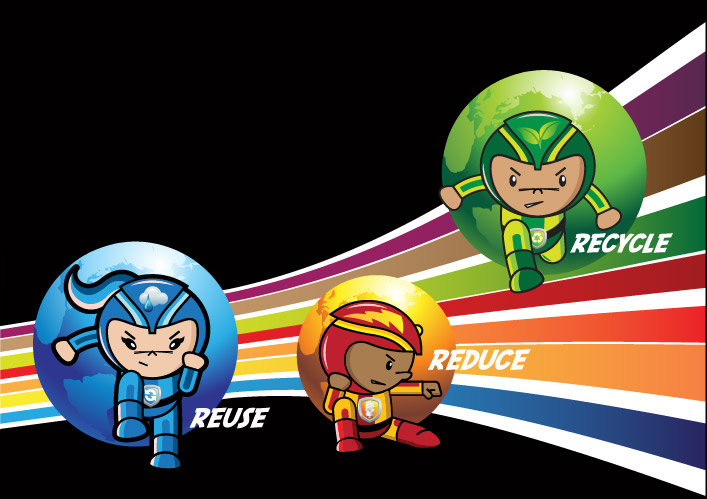Reuse, Recycle and Reduce

Imparting Energy Smarts to Young Consumers
August 10, 2011 11:27 am August 10, 2011 11:27 am
ZillowattKits for schools in Palo Alto feature superheroes who fight for energy conservation.
While some members of Congress lament the prospect of switching to energy-efficient light bulbs, one California nonprofit, Zilowatt, is spreading the energy conservation message at a grass-roots level. The group, whose motto is “Start Small,” wants to change energy habits by teaching consumers in grades K to 12 that the best light bulb is one that’s turned off.
Zilowatt, based in Palo Alto, has worked with a handful of school districts in the San Francisco Bay Area and will supply interactive educational kits to the Palo Alto schools this fall for an outreach program sponsored by the city’s utility department. The hope is the kids will bring these conservation habits home and educate their parents.
Zilowatt was started in 2010 by parents and Silicon Valley entrepreneurs who have children in the public school system. They began by considering solar power systems for the schools but were soon daunted by the red tape involved and by shrinking budgets. “It seemed easier to build a new school than put a solar panel on an existing school,” said Al Yuen, Zilowatt’s managing director.
“We concluded that the low-hanging fruit is to get people to simply turn things off when they’re done,” Mr. Yuen said, given that studies have shown that this can reduce energy use by 10 to 20 percent in the home.
Zilowatt enlisted volunteer graphic artists to create visually appealing kits for teaching simple conservation precepts. The kits are easy to use and allow students to work at their own pace, Mr. Yuen said. The materials are populated with superheroes like Reuse, Recycle and Reduce and TIO, the mascot for the group’s “Turn It Off” theme.
Although the materials are available for students up to grade 12, Zilowatt has discovered that the older pupils can be less receptive to the message. “It seems that if you don’t establish good conservation before third grade, it’s an uphill battle,” Mr. Yuen said.
The group’s goal is to offer its materials to any school district that is interested, but with two requirements. First, a sponsor must be recruited to pay for the materials so that they are provided at no cost to any school. For the Palo Alto program starting this fall, the city’s utility department received a $35,000 grant from the American Public Power Association, a service organization representing community-owned electric utilities, to cover costs.
Zilowatt also requests that the school find someone like a science teacher to oversee and promote the program.
“We don’t want to ship these and have them sit in the admin’s office,” Mr. Yuen said. “Since we’re not the ones who come and teach these programs, we’re looking for local champions who are passionate about conservation to support them.”
